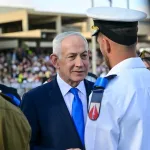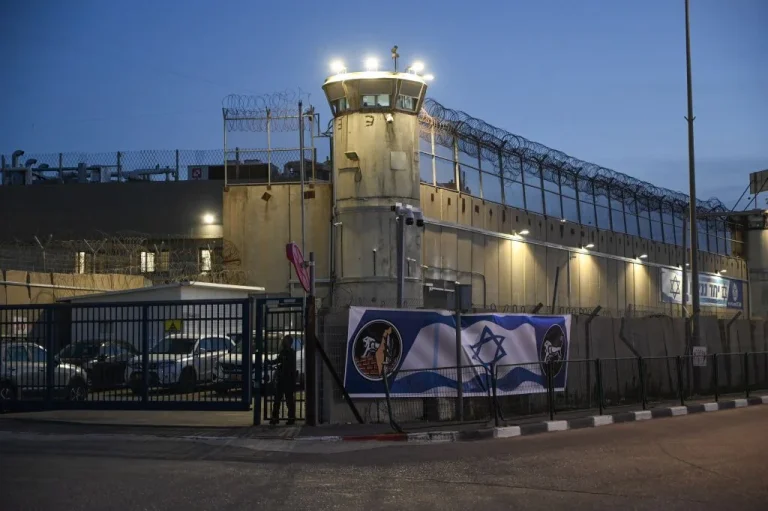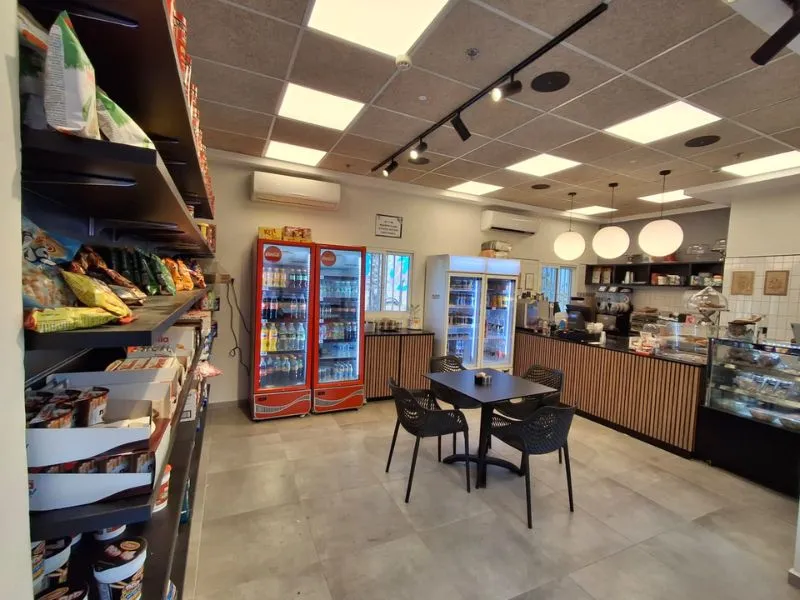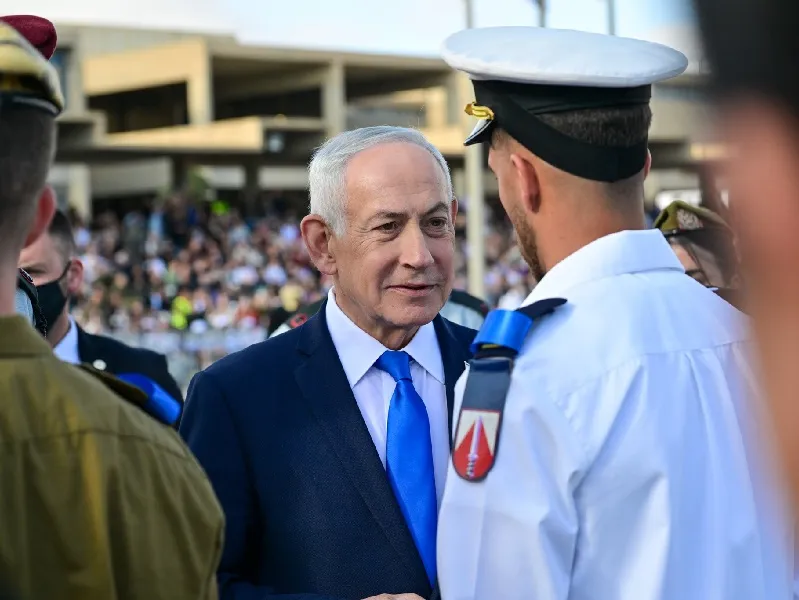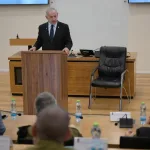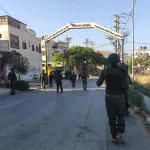Jerusalem, 8 October, 2025 (TPS-IL) — As diplomats meet in Cairo to discuss ending the war in Gaza, Hamas is demanding the release of hundreds of Palestinian terrorists imprisoned in Israel. An Israeli security source confirmed to The Press Service of Israel the names of four senior commanders who masterminded attacks in which numerous Israelis were killed.
Marwan Barghouti
Barghouti, now 66, is the highest-profile Palestinian imprisoned in Israel. During the Second Intifada, he led the Tanzim militia, which was made up of various Fatah-associated terror groups. Foremost among these groups was the Al Aqsa Martyrs Brigades, which Barghouti directly commanded and which carried out numerous suicide bombings and shooting attacks.
A civilian court in 2004 convicted Barghouti for his role in the murder of a Greek Orthodox monk, a suicide bombing in Tel Aviv that killed three, and a shooting attack that killed one. Barghouti was also convicted of attempted murder for an attack in which a suicide bomber’s explosives detonated prematurely at a Jerusalem mall. He is currently serving five life sentences in an Israeli prison for his role in three terror attacks that killed five Israelis during the Second Intifada.
Barghouti consistently tops Palestinian public opinion polls as a successor to Palestinian Authority President Mahmoud Abbas, who is 89. Palestinians have not held national elections since 2005, and Abbas is now in the 20th year of what was supposed to be a four-year term.
“The demand for his release is considered highly symbolic and political, and aims to unite the Palestinian ranks,” the security source explained to TPS-IL.
During previous negotiations for a prisoner exchange in December 2024, senior Fatah officials told TPS-IL that Barghouti’s family consented to his deportation to Turkey.
Ahmed Saadat
Ahmed Saadat was the Secretary-General of the Popular Front for the Liberation of Palestine, one of the oldest Palestinian Marxist movements. The terror group rejects a two-state solution and withdrew from the Palestine Liberation Organization in 1993 in opposition to the Oslo accords.
Saadat, now 72, was convicted of ordering the 2001 assassination of Israeli Tourism Minister Rehavam Ze’evi. Saadat took refuge in PA President Yasser Arafat’s Ramallah compound. As part of an agreement with Israel, Sa’adat was tried by the Palestinian National Authority and imprisoned in Jericho under international supervision in 2002. But in 2006, Saadat won a seat in the Palestinian Legislative Council, and the U.S. and British monitors withdrew, fearing for their safety. israeli forces raided the prison, seizing Saadat and five other security prisoners. In 2008, an Israeli military court sentenced Saadat to 30 years.
“Sa’adat is considered a radical but charismatic figure, and serves as a symbol of secular, non-Islamic national resistance – and therefore the demand for his release by Hamas was also intended to present a united Palestinian front,” the israeli security source told TPS-IL.
Hassan Salameh
Hassan Salameh is a senior Hamas figure and one of the architects of a wave of bombing attacks in the 1990s, including bus bombings in Jerusalem and Tel Aviv in which dozens of Israelis were killed. Given 46 life sentences, Salameh has been imprisoned for nearly 30 years.
“Salameh is seen by Hamas as a national hero and a mythical commander of the “golden days” of the resistance, and his release symbolizes loyalty to the veteran fighters,” the security source told TPS-IL.
Abbas al-Sayed
One of Hamas’s leaders in Tulkarem, Abbas al-Sayed masterminded the 2002 Park Hotel massacre in which 20 Israelis were killed and 140 injured by a suicide bomber on Passover night. Al-Sayed was sentenced to 35 life sentences.
“Al-Sayed is considered a cool-headed strategist and highly respected within Hamas’s military wing. For the organization, the demand for his release reflects a principled stubbornness – to return those who were involved in mass-casualty attacks, not just “political” prisoners,” the Israeli security source said.
Approximately 1,200 people were killed, and 252 Israelis and foreigners were taken hostage in Hamas’s attacks on Israeli communities near the Gaza border on October 7. Of the 48 remaining hostages, about 20 are believed to be alive.













